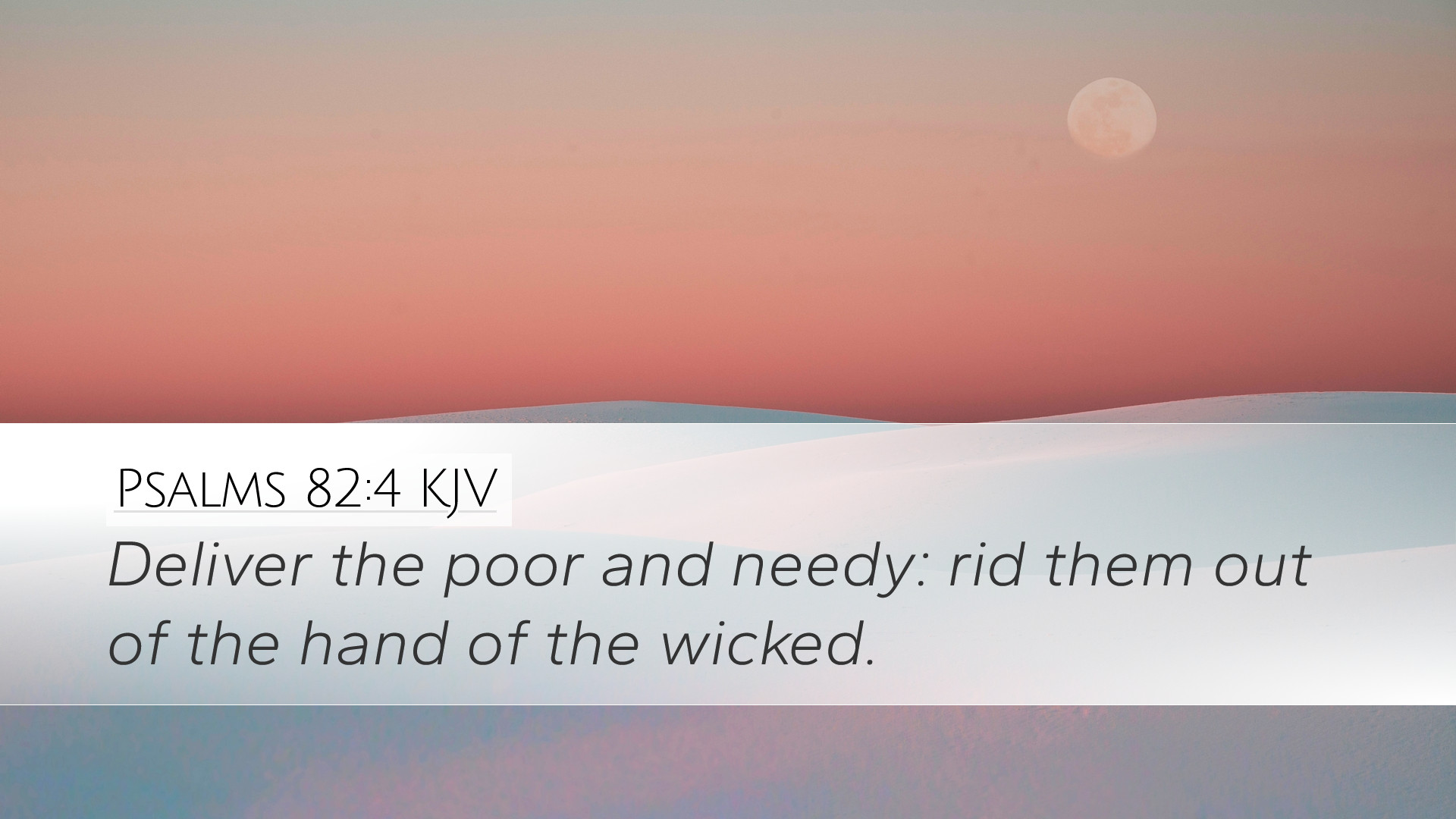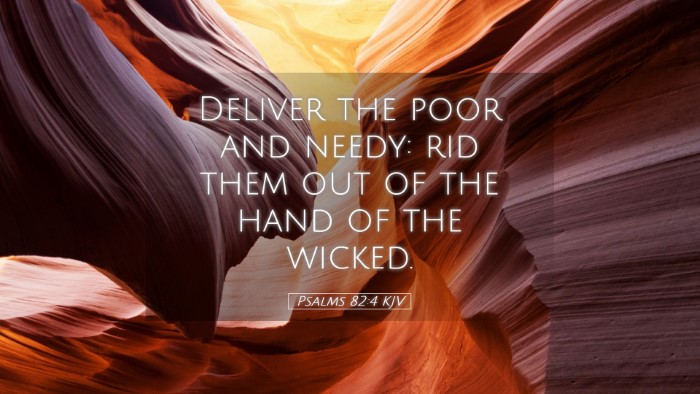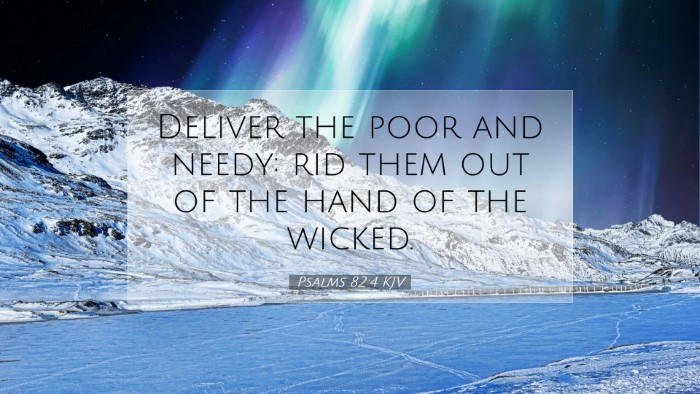Psalms 82:4 Commentary
Verse: Psalms 82:4 - "Deliver the poor and needy: rid them out of the hand of the wicked."
Introduction
Psalms 82 presents a profound discourse on divine justice and human responsibility. Within this chapter, particularly verse 4, the psalmist calls for action against injustice, highlighting the biblical mandate to care for the marginalized. The insights derived from public domain commentaries will illuminate the theological implications and practical exhortations of this verse.
The Command to Deliver
Central to Psalms 82:4 is the imperative to "deliver" the poor and needy, a theme echoed throughout scripture as a hallmark of godly authority. Matthew Henry emphasizes that God's judges and leaders are called to act in His stead, reflecting His character by protecting the vulnerable. This duty transitions from mere obligation to a divine expectation.
Albert Barnes adds that the term "deliver" indicates not only a call to rescue from physical oppression but also a spiritual deliverance, as the poor often find themselves in a state of both material and spiritual bondage due to sin and systemic injustice.
The Nature of Poverty and Need
The "poor and needy" mentioned in this passage serves as a reminder of the socio-economic disparities pervasive even to this day. Adam Clarke observes that the biblical understanding of poverty encompasses more than material lack; it signifies an existence helmed by oppression and despair, thus necessitating a holistic approach to alleviation that involves both social justice and spiritual guidance.
Furthermore, the word "needy" signifies a state of desperation where individuals may not only lack resources but also face emotional and spiritual despair. The text compels readers to acknowledge the dignity of the impoverished and the necessity of their rescue.
The Hand of the Wicked
The phrase "the hand of the wicked" illustrates the forces of evil that oppress the vulnerable. Here, Henry notes that the wicked are not only external oppressors but can also manifest within the walls of governance and societal structures, exploiting the weak for personal gain.
Barnes points out that this imagery of "hand" signifies power and authority wielded in a malicious way, indicating that those in positions of influence must exercise their power responsibly, becoming advocates for justice rather than instruments of oppression.
Theological Implications
At a theological level, Psalms 82:4 reiterates God's sovereign authority over justice. Clarke states that God's divine oversight assures the faithful that He will hold the unjust accountable, providing both comfort and a call to action for His followers.
Moreover, this verse resonates with Christ's teaching in the New Testament, where He identifies with the poor and marginalized, indicating a continuity of God's intent throughout scripture. Thus, it becomes imperative for the church today to advocate for social justice and embody the principles reflected in this psalm.
Practical Applications
- Advocacy for Justice: Pastors and church leaders are encouraged to engage in community issues, advocating for policies that uplift the poor and challenge systems of oppression.
- Church Participation: Congregations are called to support local ministries that serve the needy, ensuring that their efforts reflect a holistic approach to poverty alleviation.
- Personal Responsibility: Individuals are urged to recognize their role in promoting justice through personal interactions and living out faith in ways that uplift the marginalized.
Conclusion
Psalms 82:4 stands as a clarion call for justice and compassion, resonating through the ages with its timeless principles. The commentaries of Matthew Henry, Albert Barnes, and Adam Clarke converge on the essential truth that as followers of God, we are mandated to deliver the poor and needy from oppression. Recognizing our collective responsibility not only reflects our obedience to God but it also influences the societal structures around us. Let us thus embrace this charge with diligence and grace, advocating for those who cannot advocate for themselves.


